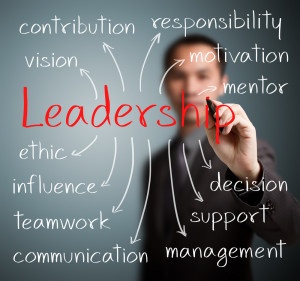 Few people would argue against the importance of leaders in effective organisations. Similarly most see them as vital in helping organisations through change. We recognise that where leadership is missing or misaligned, things do not go well. As a result, leadership has been high on the curriculum for management analysis and development for many decades. Thousands of articles and researchers have pored over its shape, its impact, its origins, how to sustain it etc etc.
Few people would argue against the importance of leaders in effective organisations. Similarly most see them as vital in helping organisations through change. We recognise that where leadership is missing or misaligned, things do not go well. As a result, leadership has been high on the curriculum for management analysis and development for many decades. Thousands of articles and researchers have pored over its shape, its impact, its origins, how to sustain it etc etc.
It is a huge area and seemingly still growing – but not without controversy! Analysts still struggle to agree over its definition, components, drivers, roots and impact, even before the disagreements begin on how best to encourage its development.
So it is perhaps not surprising that my attention was drawn this month to a fascinating but short article in McKinsey Quarterly (http://www.mckinsey.com/insights/leading_in_the_21st_century/decoding_leadership_what_really_matters) this month that suggests that, in their analysis of twenty different leadership skills, just four represent 90% of the difference between good and poor leadership, as represented in the health of their organisations.
There is not enough information for me to comment on the quality of the research base but McKinsey typically do a good job in an area (management science) that is as much art as science so there almost always something to learn from what they suggest.
Their conclusions are as interesting as much for the sixteen skills that are not highlighted as for the four that are chosen. Looking at the full list of twenty skills (which are defined at a high level) the question that struck me was a simple one:
Looking at the whole list, and knowing that just four seem to deliver 90% of the difference between good and poor, would I pick out the selected skills?
It is difficult to tell after sight of the article but I suspect that I along with many people would not.
We might have chosen one or two of them but few of us would have selected the four as a package and then I doubt that we would have given them the apparent significance that the study suggests of them almost entirely explaining the differential results.
Interestingly, if we had read the list and latched onto some obvious leadership skills like: clarifying objectives, giving praise, making good decisions or developing a shared mission, we would have chosen unwisely. None of these make the cut.
The four key skills are:
Being supportive
Having a strong results orientation
Looking for different perspectives
Solving problems effectively
What an intriguing bunch of skills.
Why these four?
Do they really represent the key (90%) determinants of differential leadership?
Does everyone cover the basics so well that it is these ones only that make the difference or is it that these alone are the keys to better results?
Are these skills to focus on in development programmes?
What should this mean for how we should change what we currently do?
It is difficult to know the answers to these questions.Yet I am struck by the four as a package.
Taken together, they seem to build on a foundation about attitudes to people that resonate with me for the world of change and innovation.
If the question had been, which of these skills are the most important when you are leading people into and through change, then I suspect we might have put some of these to the top of our lists.
They represent leadership of a kind that recognises the reality of living under uncertainty, of needing to do new things and of trying to make progress when it is not always clear what is the best way forward and how much progress can be made. They are great skills to have.
Maybe indeed that is what it is.
Social, technological, market and logistical change all around the globe is moving at an unprecedented rate. We face new challenges – to keep up and these are collective challenges that leaders need to engage all staff on because this is only way to succeed.
Maybe this is the story of where we are in organisations all around the world. The rate of change has so increased that we need to speed up change in our own organisations if they are to keep pace. People on the frontline know this and recognise leadership that makes this easier – and conversely leadership or management that makes it more difficult.
